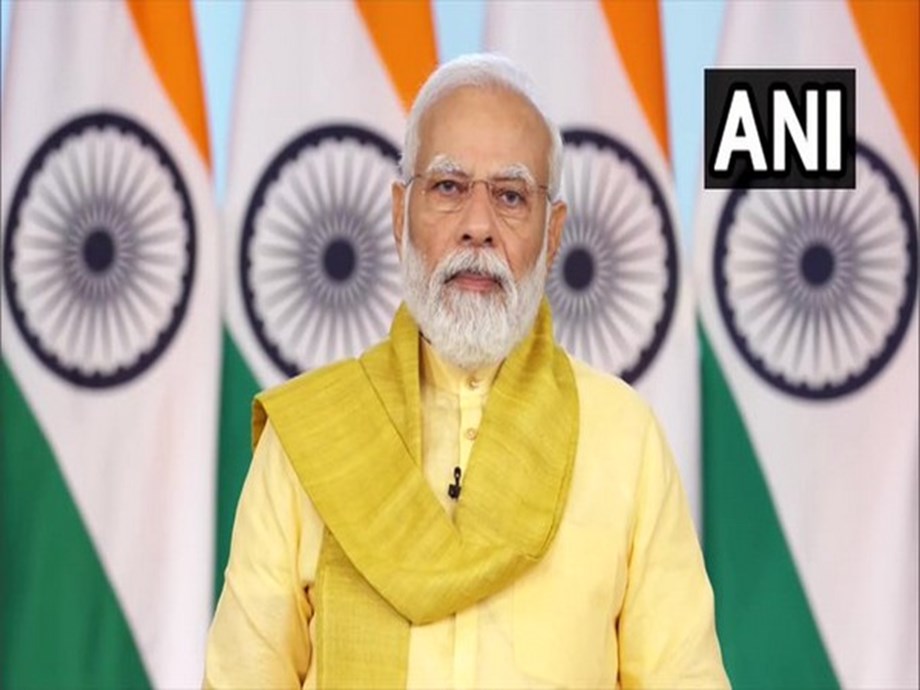Need to skill our workforce in use of advanced technologies and processes: PM Modi
Prime Minister Narendra Modi on Friday stressed the need to skill the workforce in the use of advanced technologies and processes, and called for new-age policies for new-age workers.Addressing the G20 Labour and Employment Ministers Meeting at Indore via video link, he also said that mobile workforce is going to be a reality in the future globally.In the current era of the Fourth Industrial Revolution, technology has become the core driver of employment and will remain so, Modi said.

- Country:
- India
Prime Minister Narendra Modi on Friday stressed the need to skill the workforce in the use of advanced technologies and processes, and called for new-age policies for new-age workers.
Addressing the G20 Labour and Employment Ministers' Meeting at Indore via video link, he also said that mobile workforce is going to be a reality in the future globally.
In the current era of the Fourth Industrial Revolution, technology has become the core driver of employment and will remain so, Modi said. ''We all need to skill our workforce in the use of advanced technologies and processes. Skilling, re-skilling and upskilling are the mantras for the future workforce. In India, our Skill India Mission is a campaign to connect with this reality,'' he said.
''Globally, the mobile workforce is going to be a reality in the future. Therefore, it is now time to globalise the development and sharing of skills in the true sense. The G20 must play a leading role in this,'' he said.
Sharing statistics, information and data regarding the employers and workers could be a great way to begin, Modi said.
''This will empower the countries across the globe to formulate evidence-based policies, better skilling, workforce planning and gainful employment,'' he said.
''This requires a new model of international cooperation and correlation, and migration and mobility partnerships,'' he said.
Modi lauded the efforts of the G20 meeting participants for initiating the international referencing of occupations by skills and qualifications requirements.
''The amazing work done by frontline health and other workers in India during the COVID-19 pandemic showed their skills and dedication. It also reflected our culture of service and compassion. Indeed, India has the potential to become one of the largest providers of skilled workforce for the world,'' he said.
Modi said that in this era of fourth industrial revolution, Technology has become and will remain the core driver of employment.
''We need to prepare a responsive and effective strategy to address the rapid changes. In this era of the fourth industrial revolution, technology has become and will remain the core driver of employment,'' he said.
Fortunately, this meeting is happening in a country that has had an experience of creating a large number of technology jobs during such technology-led transformations, the prime minister added. ''Your host city (Indore) is home to many start-ups leading to a new wave of such transformation,'' he said. The Skill India Mission has been launched to connect with this reality of skilled workforce, Modi said. ''Under our Kaushal Vikas Yojana, special focus has been laid on industry 4.0 sectors like artificial intelligence, robotics, internet of things and drones,'' he said.
Talking about global cooperation, Modi said that another transformative change is the evolution of new categories of workers into gig and platform economies. ''They emerged as the pillars of resilience during the pandemic. They offers flexible working arrangements and also compliments income sources. It has immense potential of gainful employment specially for the youths,'' he said. Modi said that it is also a transformative tool of socio-economic empowerment of women.
''To realise its potential, we need to design new-age policies and interventions for these new-age workers,'' he said.
The prime minister said that 218 million workers have registered themselves on the e-Shram portal that was set up to leverage targeted interventions for these workers.
''With transnational nature of work, it becomes important for every country to adopt similar solutions. We will be happy to share our experience,'' he said. The prime minister said that providing social protection to people is a key expression of the 2030 agenda, but the current framework adopted by the international organisation only accounts for benefit data structure in certain narrow ways.
Several benefits provided in other forms are not covered under the framework. We have universal public health, food security, insurance and pension programmes, he said. ''We must reconsider these benefits so that a correct picture of social protection coverage is captured,'' he said.
He said that there is a need to consider the unique economic capabilities, strains and challenges.
Adopting ''one size fits all'' approach is not suitable for sustainable financing of social protection, he said. ''I hope you (G20 countries) would be applying your expertise in thinking about a system that accurately reflects such efforts made by different countries,'' he said.
(This story has not been edited by Devdiscourse staff and is auto-generated from a syndicated feed.)
ALSO READ
Cong-DMK will begin seat-sharing talks soon, says TNCC chief
Cong-DMK will begin seat-sharing talks soon, says TNCC chief
Strategic Water Sharing: Haryana and Rajasthan's Yamuna Pipeline Plan
At NCC rally in Delhi, PM Narendra Modi expresses grief over demise of Ajit Pawar, others in plane crash.
Rahul Gandhi Meets DMK's Kanimozhi: Seat-Sharing Talks for TN Election Continue










